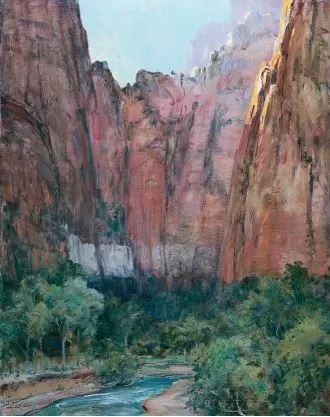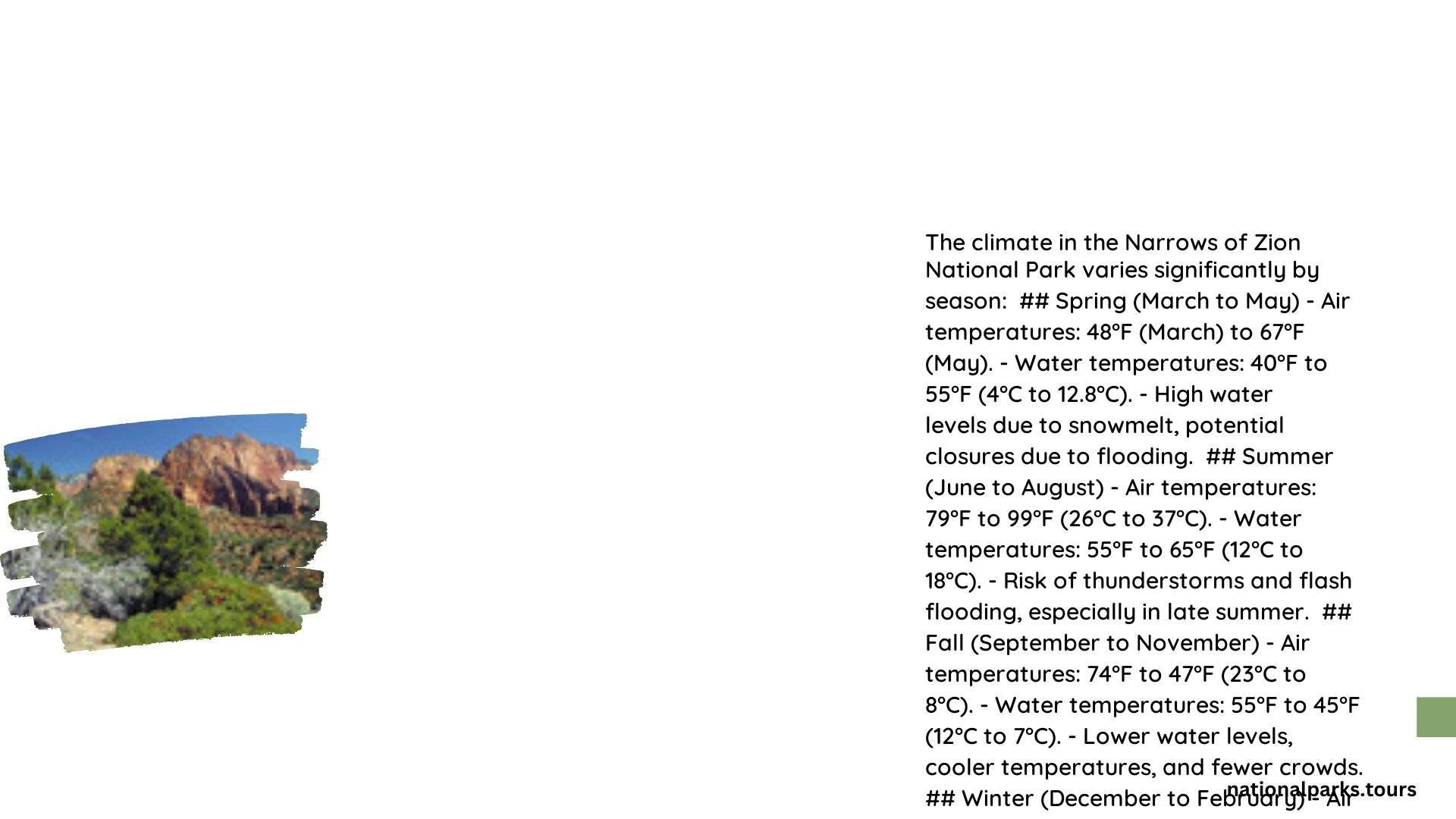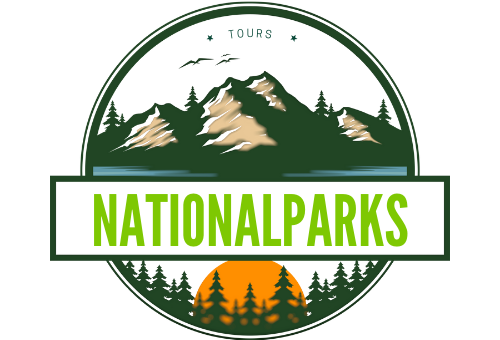The Narrows in Zion National Park experiences a diverse climate with significant seasonal variations. Located in a deep canyon, its unique microclimate is influenced by elevation, water flow, and surrounding rock formations. Temperatures range from freezing winters to hot summers, with spring and fall offering milder conditions. Water levels fluctuate throughout the year, impacting hiking conditions and accessibility.
What Are the Key Features of The Narrows Climate?

The Narrows climate is characterized by:
- Extreme temperature variations between seasons
- Fluctuating water levels in the Virgin River
- Potential for flash floods, especially during summer monsoons
- Microclimate effects due to the deep canyon setting
- Influence of snowmelt on spring conditions
How Do Temperatures Vary Throughout the Year?

Temperatures in The Narrows vary significantly across seasons:
| Season | Air Temperature Range | Water Temperature Range |
|---|---|---|
| Spring | 48°F – 67°F (9°C – 19°C) | 40°F – 55°F (4°C – 12.8°C) |
| Summer | 79°F – 84°F (26°C – 28°C) | 55°F – 65°F (12°C – 18°C) |
| Fall | 47°F – 74°F (8°C – 23°C) | 45°F – 60°F (7°C – 15°C) |
| Winter | 37°F – 42°F (2°C – 5°C) | 40°F – 45°F (4°C – 7°C) |
What Are the Seasonal Climate Patterns in The Narrows?
Spring Climate
- Cold snaps common
- High water levels due to snowmelt
- Potential closures in March and April when water exceeds 150 CFS
- Gradually warming temperatures
Summer Climate
- Warmest air and water temperatures
- Popular hiking season
- Threat of thunderstorms and flash floods
- Monsoon season increases flood risk
Fall Climate
- Stable weather conditions
- Decreasing air and water temperatures
- Shorter days but favorable hiking conditions
- Lower risk of flash floods
Winter Climate
- Coldest temperatures
- Requires specialized gear for hiking (dry suits, insulating layers)
- Hazards include falling ice and slippery surfaces
- Offers solitude in the canyon
How Does Rainfall Affect The Narrows?
Rainfall patterns in The Narrows include:
- Generally dry conditions year-round
- Summer afternoon thunderstorms
- Increased risk of flash floods during monsoon season
- Spring rainfall contributing to snowmelt and higher water levels
What Are the Water Level Variations in The Narrows?
Water levels in the Virgin River fluctuate based on:
- Seasonal rainfall
- Snowmelt from surrounding mountains
- Summer monsoons
Water level impacts:
– Below 50 CFS: Relatively easy hiking conditions
– Above 100 CFS: Difficult or dangerous hiking
– Above 150 CFS for over 24 hours: Potential closure of The Narrows
When Is the Best Time to Visit The Narrows?
The optimal time to visit The Narrows is during fall, particularly from September to November, due to:
- Stable weather conditions
- Comfortable air and water temperatures
- Reduced crowds compared to summer
- Lower risk of flash flooding
- Enjoyable hiking experience
What Specific Conditions Affect Accessibility and Safety in The Narrows?
Key factors impacting accessibility and safety include:
- Flash Flooding:
- Can occur year-round, more common in summer
-
Requires constant awareness of weather forecasts
-
Water Levels:
- Must be below 150 CFS for safe hiking
-
Levels fluctuate with rainfall and snowmelt
-
Toxic Cyanobacteria:
- Potential presence in water
-
Requires checking current conditions before entering the river
-
Seasonal Hazards:
- Winter: Falling ice, slippery surfaces
- Summer: Heat exhaustion, dehydration
- Spring: High water levels from snowmelt
How Does The Narrows Climate Compare to Overall Zion National Park?
The Narrows climate differs from the broader Zion National Park in several ways:
- Temperature Moderation:
- Canyon walls provide shade, moderating extreme temperatures
-
Water presence creates a cooler microclimate in summer
-
Humidity Levels:
- Higher humidity in The Narrows due to constant water presence
-
Contrasts with drier conditions in open areas of the park
-
Wind Patterns:
- Reduced wind exposure in the narrow canyon
-
Can lead to stagnant air conditions
-
Precipitation Effects:
- Increased risk of flash flooding due to confined space
-
Snowmelt impact more pronounced in The Narrows
-
Sunlight Exposure:
- Limited direct sunlight due to high canyon walls
- Creates unique lighting conditions and affects temperature
Understanding these climate nuances is crucial for planning a safe and enjoyable visit to The Narrows in Zion National Park.
References:
- https://www.zionadventures.com/seasons-in-the-narrows.html
- https://www.citrusmilo.com/zionguide/conditions.php
- https://www.nps.gov/zion/planyourvisit/thenarrows.htm
